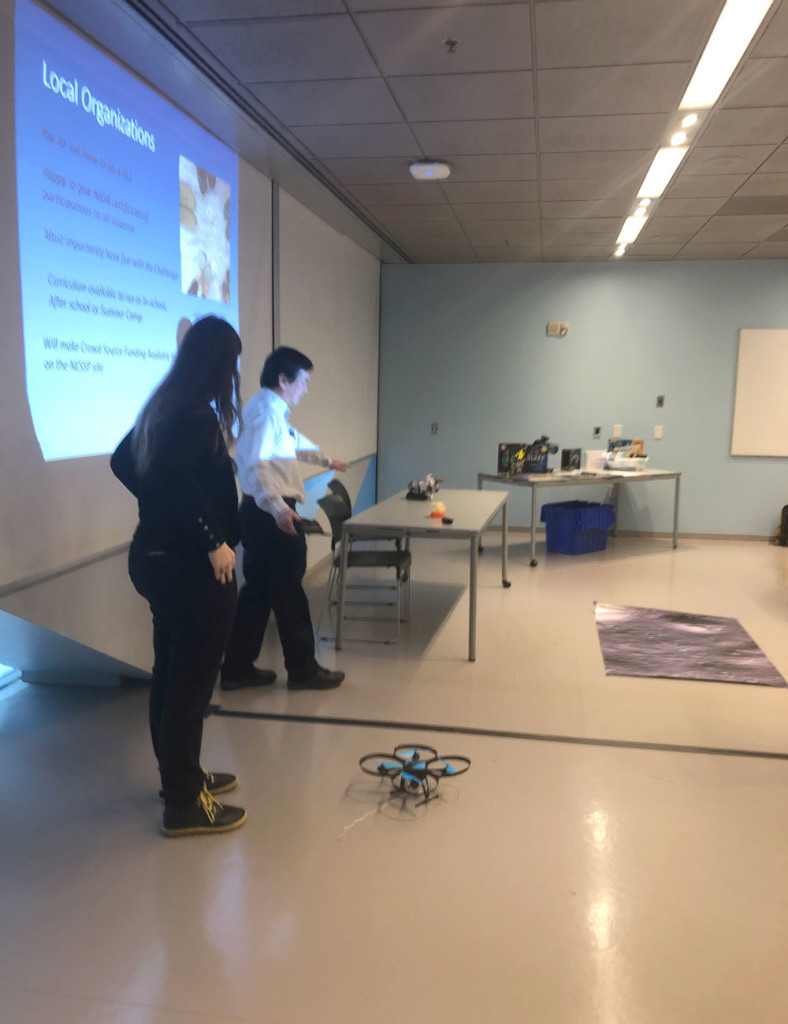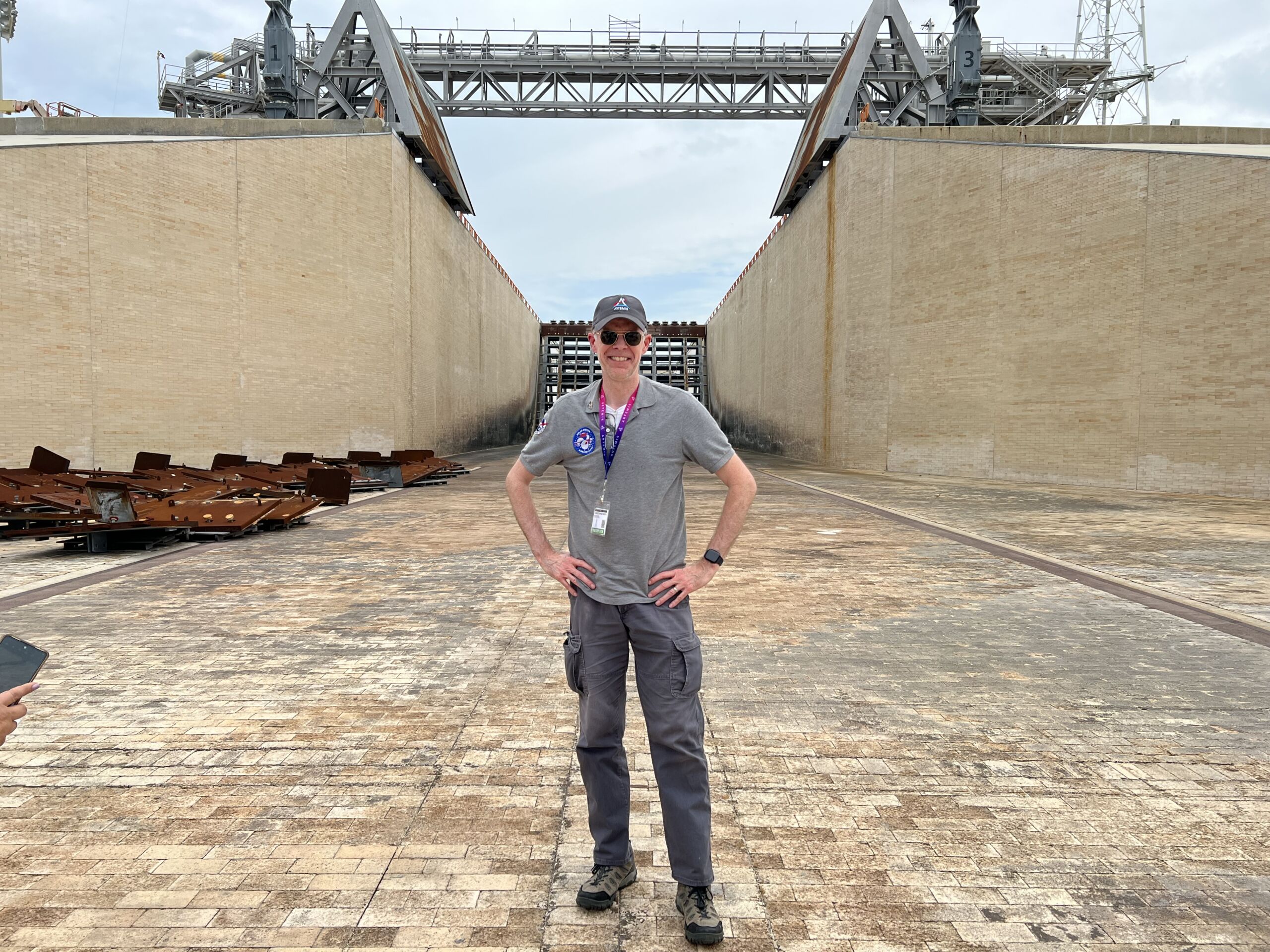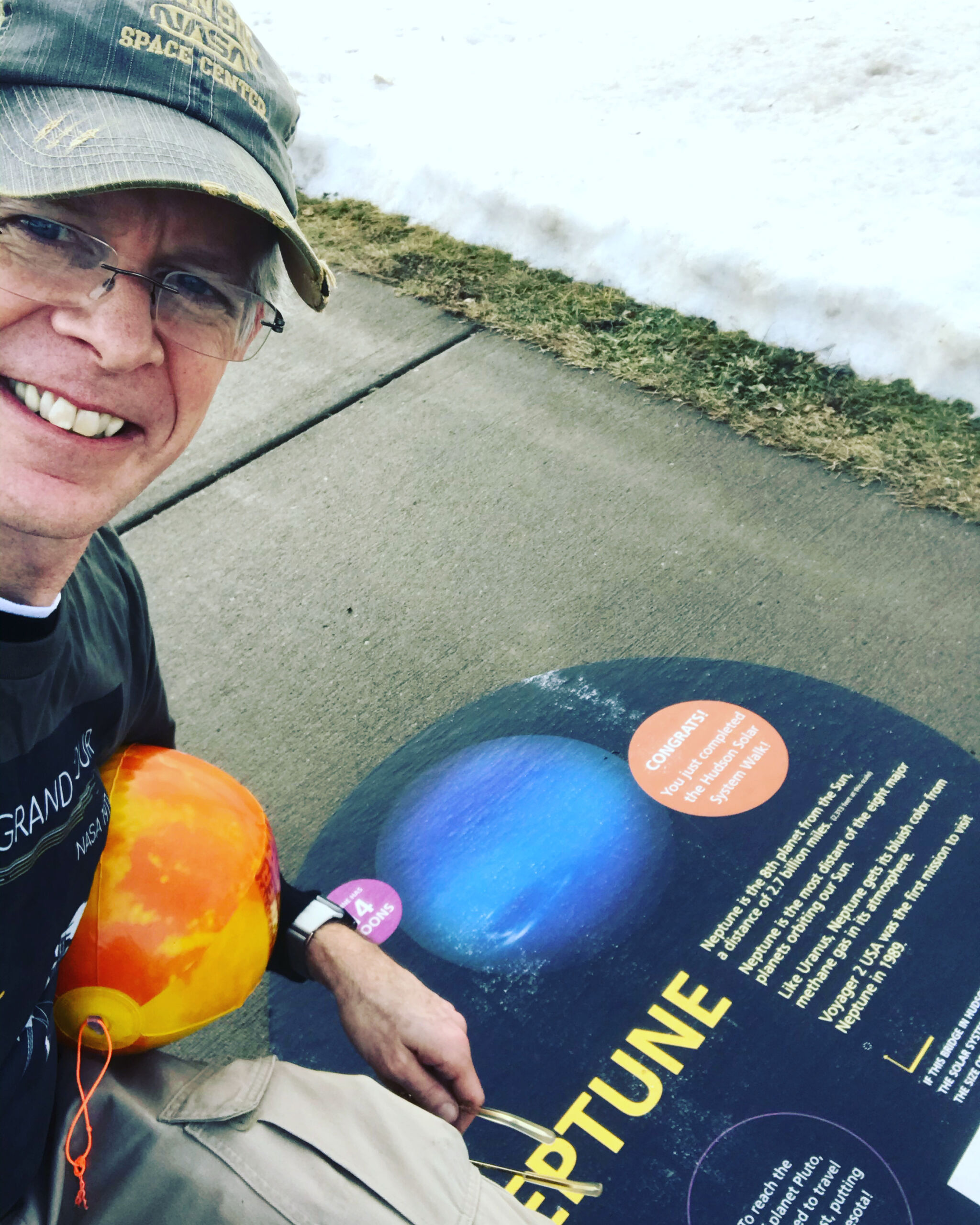by Stephanie Vierow-Fields
STAR Net’s Summer of Space in partnership with the Collaborative Summer Learning Program’s A Universe of Stories, invites libraries to participate in a national STEM challenge designed for the hard to reach tween/teen age group. The Northwest Earth and Space Science Pipeline (at the Univ. of Washington, in Seattle) is the lead organization.
 As part of the 50th anniversary of the Apollo 11 Moon landing, the ANGLeS (Apollo Next Giant Leap Student) Challenge invites teams from fifth grade to high school seniors to build a replica of the lunar lander and use a remote-controlled Blue Heron drone to land it on an 8-by-12-foot map of the Moon’s surface. Student teams will modify and program a Lego Mindstorms EV3 robot to then explore the lunar surface and bring back a rock sample within a specified length of time. This national challenge takes place in July 2019 and is partially funded by NASA.
As part of the 50th anniversary of the Apollo 11 Moon landing, the ANGLeS (Apollo Next Giant Leap Student) Challenge invites teams from fifth grade to high school seniors to build a replica of the lunar lander and use a remote-controlled Blue Heron drone to land it on an 8-by-12-foot map of the Moon’s surface. Student teams will modify and program a Lego Mindstorms EV3 robot to then explore the lunar surface and bring back a rock sample within a specified length of time. This national challenge takes place in July 2019 and is partially funded by NASA.
“This is a truly interdisciplinary challenge, involving computer programming, robotics, remote sensing and design,” said Robert Winglee, director of the Northwest Earth and Space Sciences Pipeline and a UW professor of Earth and space sciences.
Libraries do not have to participate in every aspect of the contest but can customize their own unique challenge to fit their community, developing one or more teams in the process. Libraries can work with their local school district, robotics clubs, or even their own afterschool groups to develop their teams and compete against each other. From the simplest activity of designing a team mission patch to flying a drone and docking a model of the lunar lander, ANGLeS provides a great opportunity for libraries and schools to work together!
While the libraries in the 15 “hub” states have the opportunity to win the grand prize, every library in every state within the U.S. is eligible to participate, and potentially be recognized. Registration is free, and there are opportunities for crowd funding to provide the programming supplies.
The Northwest challenge will be held in July in Seattle and is open to teams from schools or recognized informal education programs (including ones based at public libraries). Twelve other NASA regional hubs will also host events the week of July 15-20. The winning team from each location will win a trip in early August to visit NASA’s Johnson Space Center in Houston.
More information can be found at https://nwessp.org/apollo50/.
[youtube id=”-y0q7dojr0s” width=”800″ height=”450″ autoplay=”no” api_params=”” class=””]
Drone and rover footage taken at the Universe of Stories Planning workshop at the Seattle Public Library. Drone operated by Deana Brown from the Idaho State Library.
We will be promoting this and other events and activities on our Summer of Space web page. Check it out and register so you stay up–to–date on all the exciting opportunities the 2019 summer of space will bring.




This looks like soooo much fun! Before I heard about it, I’d already started planning a series of coding/robotics challenges for the kids who attend Gadget Lab at the library where I work this summer. Over the course of nine weeks, we’re going to use Ozobots to travel to Cape Canaveral on a United States map. Then “launch” from there to visit the ISS in orbit. We’ll re-position a satellite to a larger orbit. Then, since this is the anniversary of the first Apollo moon landing, we’ll code our robots to visit landing sites on the moon. Hopefully, if all goes well, we’ll be able to visit the Martian surface and see where the various Martian rovers visited our red neighbor. I’m going to buy the largest maps of the Moon and Mars that I can for this series of programs. I hope the kids have as much fun as I’m planning to have!